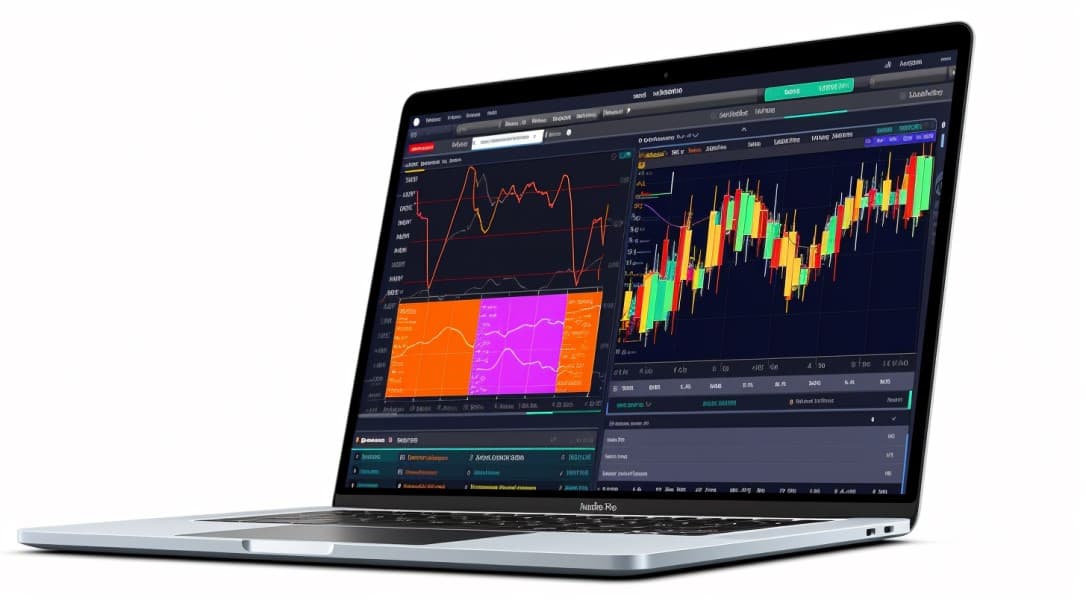
GDX VS GLTR
Exchange-Traded Funds (ETFs) have emerged as powerful tools for investors to diversify their portfolios across different sectors and asset classes. In this article, we will conduct an in-depth analysis of two prominent ETFs: GDX (VanEck Vectors Gold Miners ETF) and GLTR (Aberdeen Standard Physical Precious Metals Basket Shares ETF). By exploring a range of key aspects such as tickers, full names, issuers, sectors, top holdings, capitalization, strategy, tracking, and exposure, we aim to provide readers with valuable insights for making informed investment decisions.
GDX Vs GLTR: Overview
GDX and GLTR represent two distinct investment avenues within the precious metals market. GDX is specifically designed to track the performance of companies involved in gold mining, while GLTR offers exposure to a basket of precious metals, including gold, silver, platinum, and palladium. This fundamental difference in focus sets the stage for a comprehensive comparison between these two ETFs.
GDX Vs GLTR: Sectors and Top Holdings
The GDX ETF primarily invests in stocks of gold mining companies, which include industry giants such as Newmont Corporation and Barrick Gold Corporation. On the other hand, GLTR's holdings encompass physical precious metals, with allocations across gold, silver, platinum, and palladium. Understanding the sectors and top holdings of these ETFs is crucial for investors seeking exposure to specific segments of the precious metals market.
 GDX overlap GDX VS GLTR
GDX overlap GDX VS GLTR
GDX Vs GLTR: Capitalization and Strategy
GDX boasts a substantial asset under management (AUM), indicative of its popularity among investors looking to capitalize on the performance of gold mining companies. GLTR's strategy revolves around owning physical quantities of precious metals, providing investors with a tangible asset-backed investment. The disparity in capitalization and strategy between GDX and GLTR presents varying risk-return profiles that investors need to weigh against their financial goals.
GDX Vs GLTR: Tracking and Exposure
The GDX ETF closely tracks the NYSE Arca Gold Miners Index, allowing investors to gain exposure to the gold mining sector's performance. In contrast, GLTR provides a broader exposure by holding physical precious metals in a diversified basket. The tracking methodologies employed by these ETFs significantly influence the type of market movements they capture, making it essential for investors to comprehend these distinctions.
Conclusion
GDX and GLTR offer investors diverse pathways to tap into the potential of the precious metals market. The choice between the two hinges on one's investment objectives, risk appetite, and market outlook. Whether an investor is enticed by the growth prospects of gold mining companies or the stability of owning physical precious metals, each ETF presents a unique opportunity.
For those seeking deeper insights into the holdings, correlations, overlaps, and other essential metrics associated with ETFs, there's a valuable resource available: ETF Insider. This user-friendly app serves as the ultimate tool to navigate the intricate landscape of financial instruments. With access to comprehensive data and analytics, investors can make well-informed decisions aligned with their financial aspirations.
Disclaimer: This article is intended solely for informational purposes and does not provide investment advisory services. Any investment decisions should be made after thorough research and consideration of one's financial circumstances. Always consult with a qualified financial advisor before making investment choices.
Sources:
ETF issuers' official websites
Financial news platforms
Bloomberg
Morningstar
By delving into the nuanced differences between GDX and GLTR, we hope to equip readers with the knowledge needed to make prudent investment choices. Whether an investor is drawn to the potential of gold mining stocks or seeks the stability of owning physical precious metals, these ETFs offer distinct avenues to participate in the precious metals market's dynamics. As the investment landscape continues to evolve, staying informed about various financial instruments remains crucial, and tools like ETF Insider can serve as invaluable resources in this journey.
So, whether you're an experienced investor looking to diversify your portfolio or a newcomer aiming to grasp the complexities of ETFs, understanding the unique characteristics of ETFs like GDX and GLTR is a step toward achieving your financial goals. Remember, knowledge is a powerful asset in the world of investments, and the right information can guide you towards making informed and successful decisions.
GLTR quote and analysis
Discover the top holdings, correlations, and overlaps of ETFs using our visualization tool.
Our app allows you to build and track your portfolio.
To learn more about the GLTR abrdn Physical Precious Metals Basket Shares ETF, access our dedicated page now.
FAQ
Why is GDX better than GLTR?
GDX may be considered better than GLTR for some investors due to its specific focus, offering diversification.
Does GLTR beat GDX?
GLTR's performance relative to GDX will vary over time, depending on market conditions.
Should I invest in GDX or GLTR?
The choice between GDX and GLTR should align with your investment goals, risk tolerance, and desired exposure.
Are GDX and GLTR good investments?
Both GDX and GLTR can be suitable investments depending on individual investment strategies, goals, and risk profiles.
What is the correlation between GDX and GLTR?
The correlation between GDX and GLTR can vary over time, reflecting differences in performance.